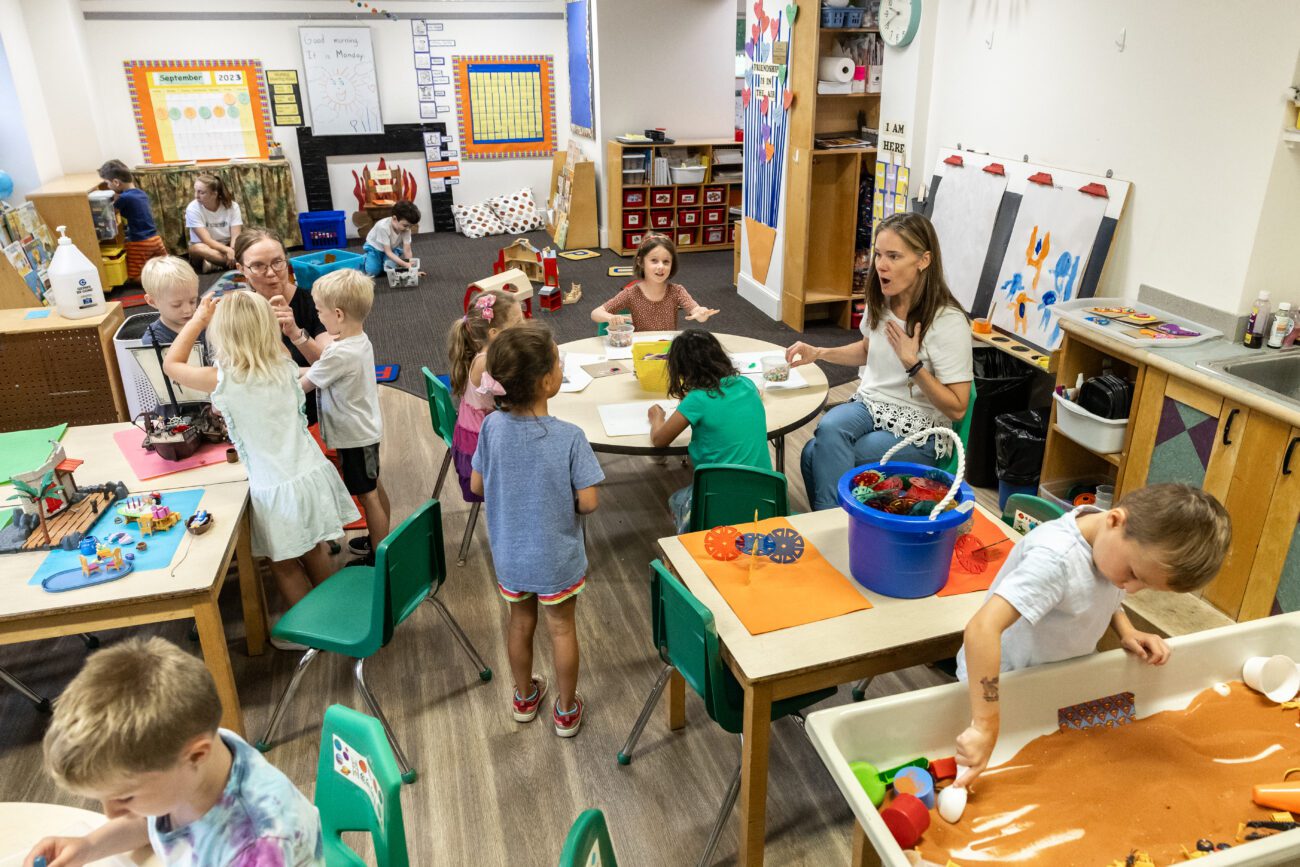Learning to Play and Playing to Learn at Phebe Anna Thorne School
Find out why Phebe Anna Thorne is getting A’s from parents on its social emotional learning curriculum

Bryn Mawr’s Hidden Gem Toddler Through Kindergarten Programs
Bryn Mawr College is recognized as a top-tier institution of higher learning. Not quite as well known, but beloved quite the same by its students and families, is the Phebe Anna Thorne School located on the campus of Bryn Mawr. “We’re definitely a little bit of a hidden gem,” says Amanda Ulrich, M.S.Ed., Director of the Thorne School. Offering programs for toddlers and preschoolers at its Bryn Mawr College campus location, Phebe Anna Thorne School also offers a full-day kindergarten at its center on Haverford College’s campus. In addition to traditional programming, Thorne offers a Language Enrichment program for children with speech language needs. Intimate class sizes from the toddler through kindergarten programs allows for teachers to excel at the school’s commitment to Social Emotional Learning (SEL), which is the process of developing a student’s self-awareness, self-control and interpersonal skills that are vital throughout their school career.

Learning Through Play Enhances Problem Solving and Social Skills
Since the early 1950s, the Phebe Anna Thorne School has focused on learning through play in its toddler and preschool programs, with more traditional academics being introduced at the Kindergarten level. Research shows that play enhances children’s problem-solving and social skills leading to more curious, independent, joyful learners. Phebe Anna Thorne School starts SEL with the youngest children in their program. Jan Linowitz, Ed.D., Psychoeductional Consultant at Thorne, describes the progression. “In the toddler program, we encourage children to move from parallel play to increased awareness of the other children in the room with them. Play is really a wonderful way to encourage social interaction,” says Linowitz.

Toddler Program Focuses on Language Development and Self-Regulation
Teachers provide support as children begin to use language and put feelings and reactions into words to communicate with fellow students. They also provide support in having children hear what their classmate is trying to express to them. “We also encourage the development of self-regulation. When the tower that a child is building falls down, can they rebuild the tower, or are they overcome with frustration?” asks Linowitz. “Children at this age have big emotions and we help them to handle and understand those emotions.”

Kindergarten Reinforces SEL and Teaches Classroom Community Skills
In full-day kindergarten, students at the Phebe Anna Thorne School have SEL further reinforced through their learning of how to be a member of a classroom community. Children are introduced to: how to interact with the teacher; how to participate in a class discussion; how to take turns; how to hold onto their thoughts until it’s their turn to share; and how to respond appropriately to fellow classmates. Again through play, teachers guide them in how to include friends in play and effective ways to talk through differences. “So we’re working to prepare them for a classroom where there will be less teacher support and where there will be more children,” says Linowitz. “We teach them how to be effective, positive, compassionate members of a classroom community.”

The kindergarten class caps at 16 children and is staffed with a teacher, assistant teacher, part-time literacy specialist and aides who are undergraduate students from Haverford and Bryn Mawr colleges. “I do a weekly lesson on social emotional literacy with the kids,” adds Linowitz. “We focus on identifying feelings in themselves and others.” After every lesson, Linowitz sends an email home to parents sharing what was discussed during the lesson and introducing any vocabulary that she used with the kids so it can be modeled at home. It’s very important for all of us to be able to listen to people with different ideas and to respond thoughtfully to what the people around us are saying and doing,” says Linowitz. “And the more we’re able to listen and the more compassion we have for other people, the better we’re going to do. We want our students to feel like successful learners and successful members of the classroom community at the end of kindergarten, then they’ll be set for all that comes next after they leave our school.”
You can learn more about the Phebe Anna Thorne School on their Profile Page and their Facebook Page. Contact Amanda Ulrich for enrollment information at 610-526-7913. There are limited spots available in their Kindergarten class for the 2024-25 school year.




NO COMMENTS